Find Help
More Items From Ergsy search
-
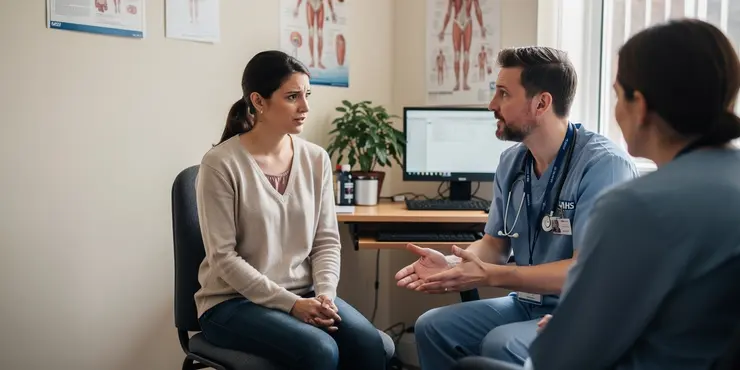
IBS and your mind: Is there a connection?
Relevance: 100%
-
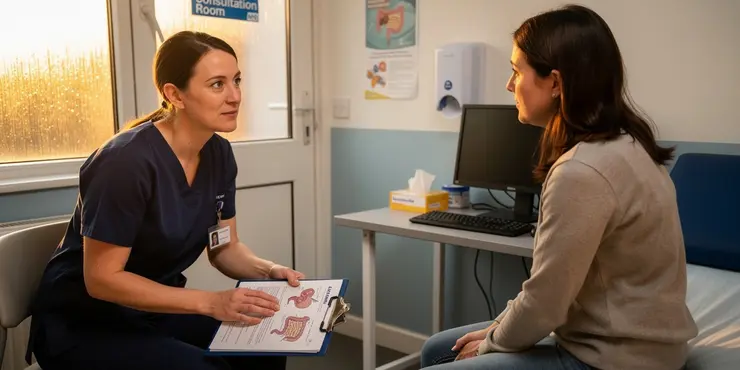
IBS and your mind: Is there a connection?
Relevance: 99%
-
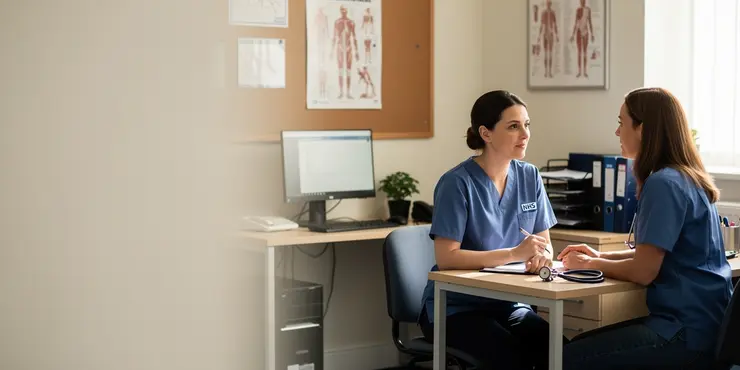
About irritable bowel syndrome (IBS)
Relevance: 48%
-
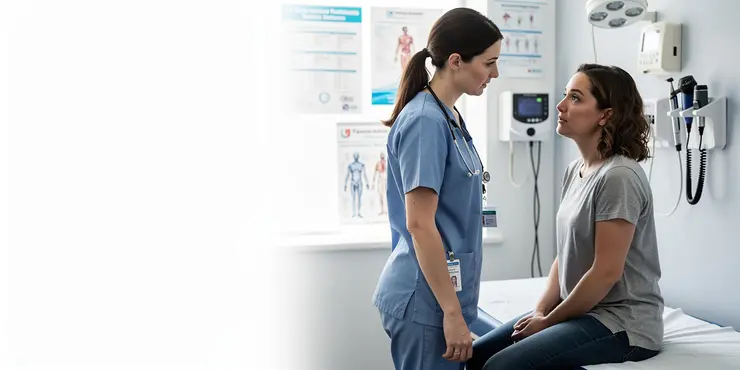
What is irritable bowel syndrome (IBS)?
Relevance: 45%
-
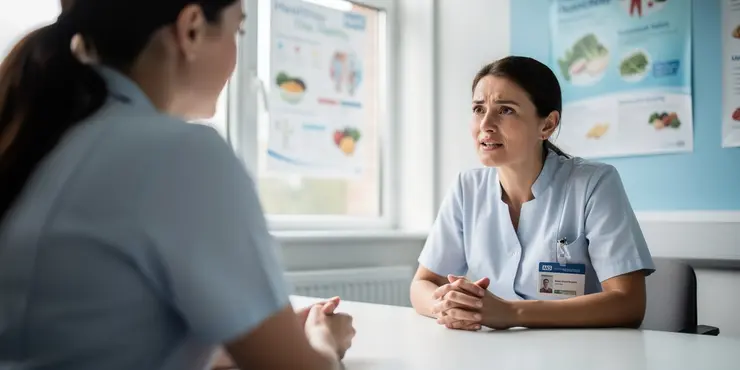
Treating irritable bowel syndrome (IBS)
Relevance: 45%
-
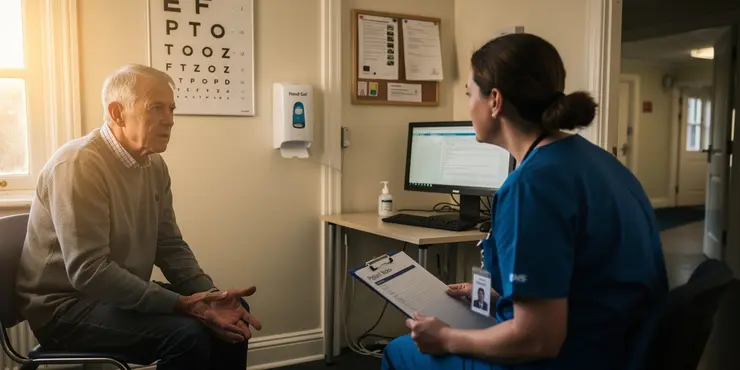
Causes of irritable bowel syndrome (IBS)
Relevance: 44%
-
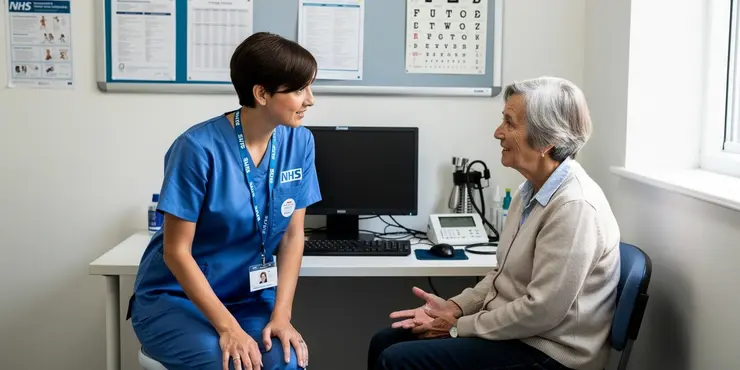
Causes of irritable bowel syndrome (IBS)
Relevance: 43%
-
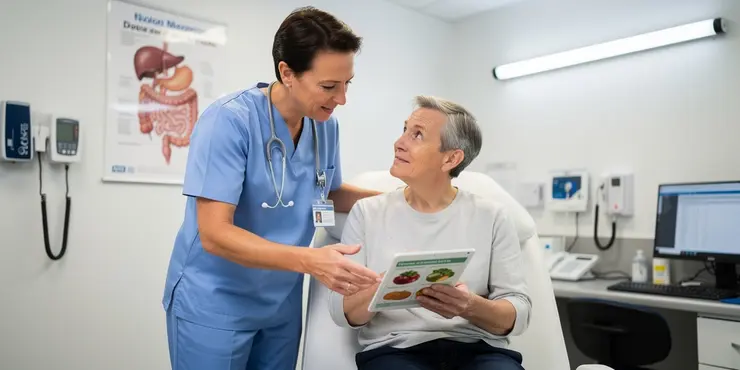
Treating irritable bowel syndrome (IBS)
Relevance: 43%
-
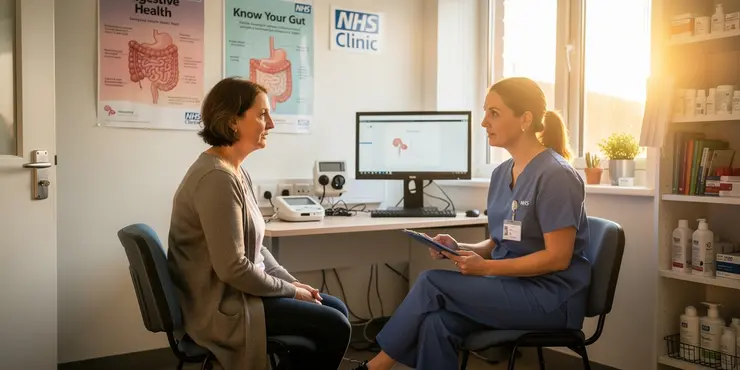
About irritable bowel syndrome (IBS)
Relevance: 42%
-
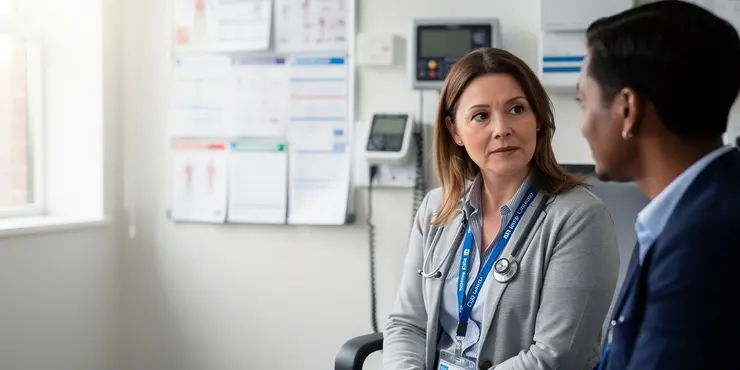
What is irritable bowel syndrome (IBS)?
Relevance: 41%
-

Symptoms of irritable bowel syndrome (IBS)
Relevance: 41%
-
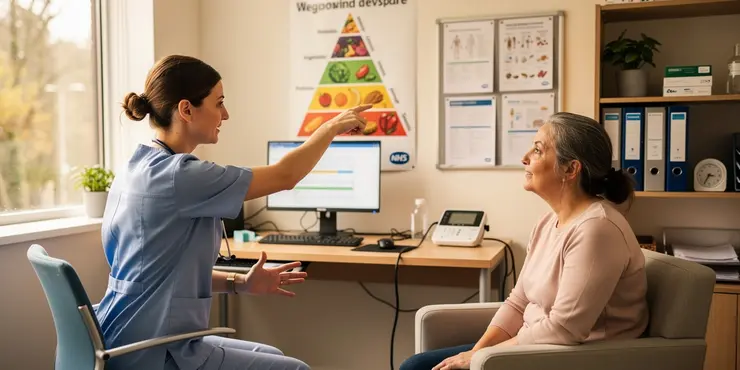
Does your diet affect IBS?
Relevance: 41%
-
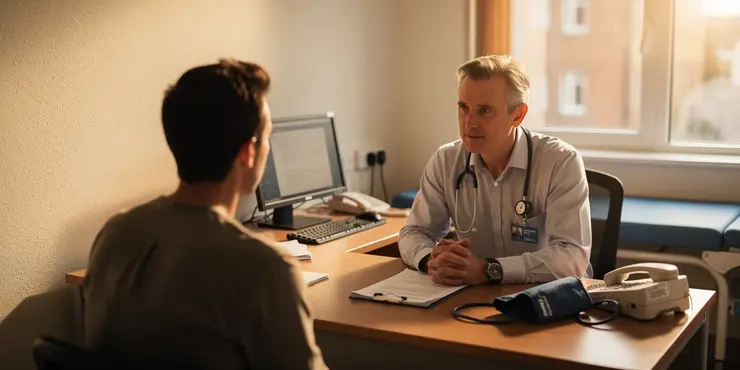
Diagnosing irritable bowel syndrome (IBS)
Relevance: 41%
-
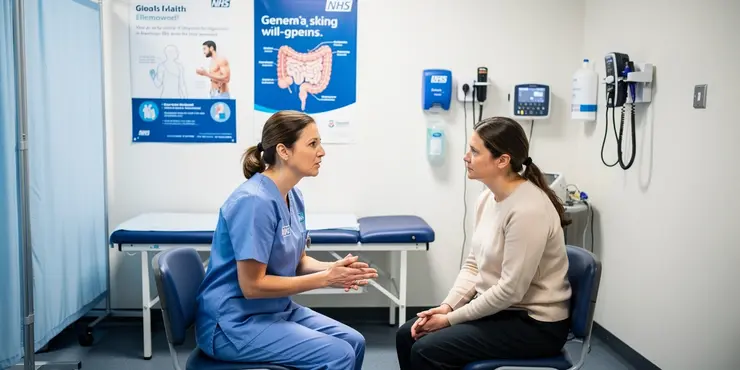
Symptoms of irritable bowel syndrome (IBS)
Relevance: 41%
-

Will travel insurance cover missed connections?
Relevance: 37%
-
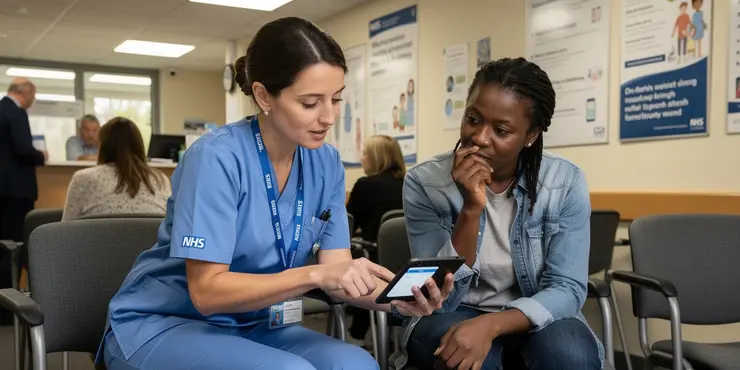
Why are there unfamiliar apps connected to my social media account?
Relevance: 31%
-

Does holiday insurance cover travel delays or missed connections?
Relevance: 29%
-

How can I secure my phone's internet connection?
Relevance: 29%
-
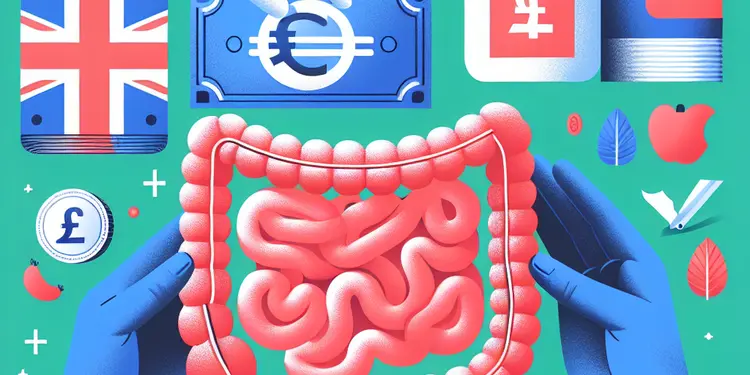
How is gut health connected to the aging process?
Relevance: 25%
-
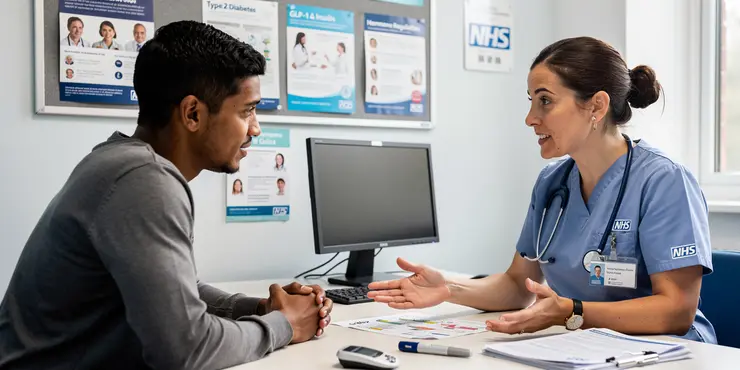
What is the connection between GLP-1 and insulin?
Relevance: 24%
-
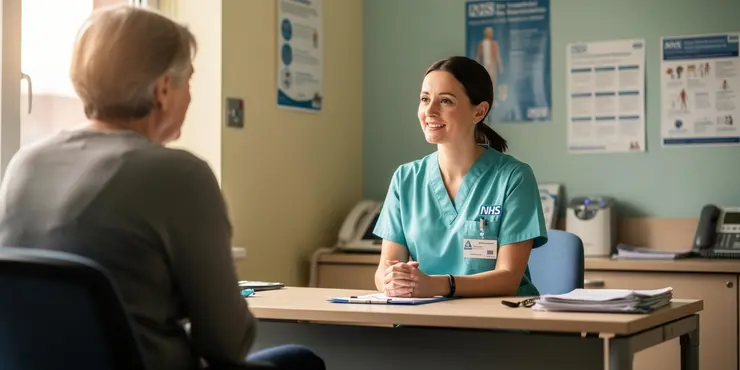
Is there a connection between cortisol and the immune system?
Relevance: 24%
-

Does stress impact gut health as we age?
Relevance: 20%
-
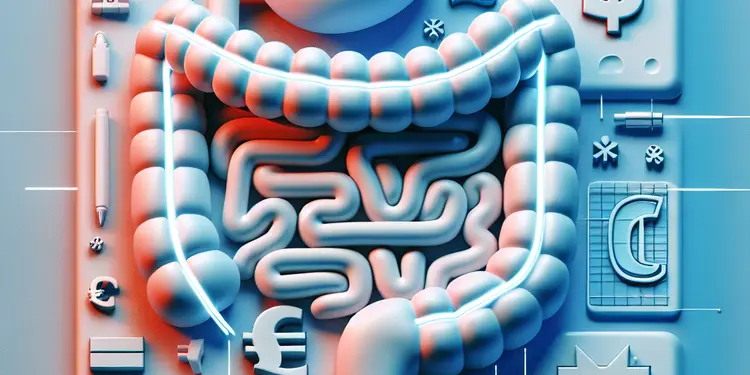
Are there specific gut-related diseases that become more common with age?
Relevance: 16%
-

How does walking to work impact mental health?
Relevance: 16%
-
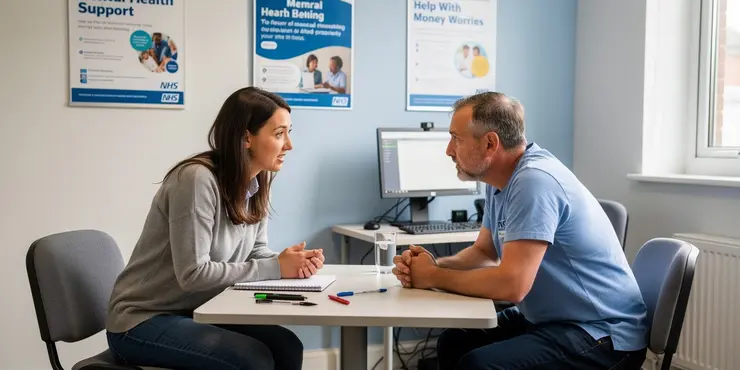
Essential Tips for Mental Health and Well-Being Amidst Rising Living Costs
Relevance: 14%
-

Can lifestyle changes help with postnatal depression?
Relevance: 14%
-
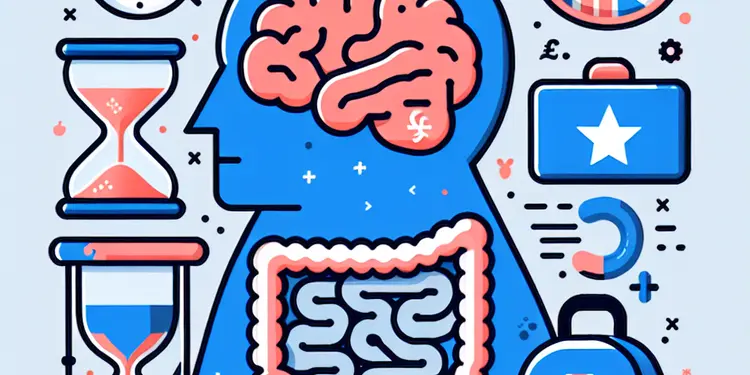
Can gut health affect mental health as one ages?
Relevance: 14%
-

How can older adults find new hobbies that can be done at home?
Relevance: 13%
-
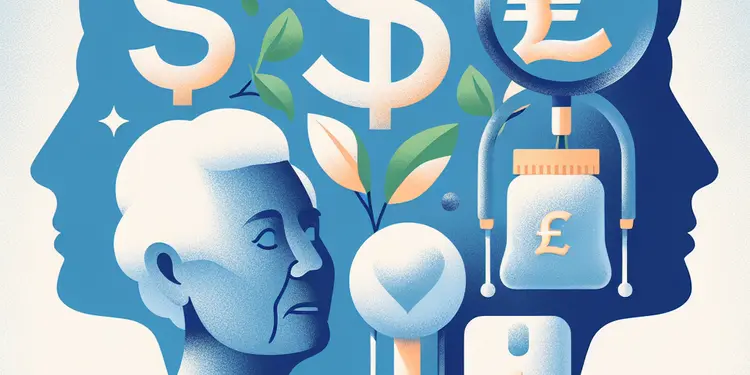
Can lifestyle changes during menopause help reduce dementia risk?
Relevance: 13%
-

How important is self-care for carers of Alzheimer's patients?
Relevance: 13%
-

Innovative App Aims to Combat Loneliness Among Elderly
Relevance: 13%
-

What are some signs of poor gut health?
Relevance: 13%
-

How can carers manage stress while caring for someone with Alzheimer's?
Relevance: 12%
-

How does social media contribute to the loneliness epidemic?
Relevance: 12%
-

What is gut health?
Relevance: 12%
-
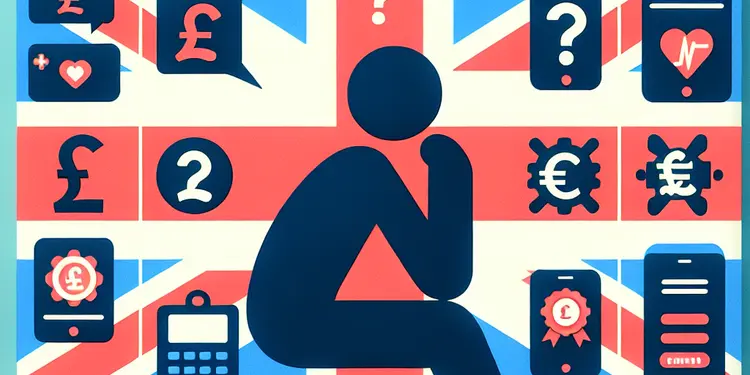
What should someone do if they suspect they have health-related anxiety?
Relevance: 12%
-

Are there self-help strategies for managing health-related anxiety?
Relevance: 12%
-
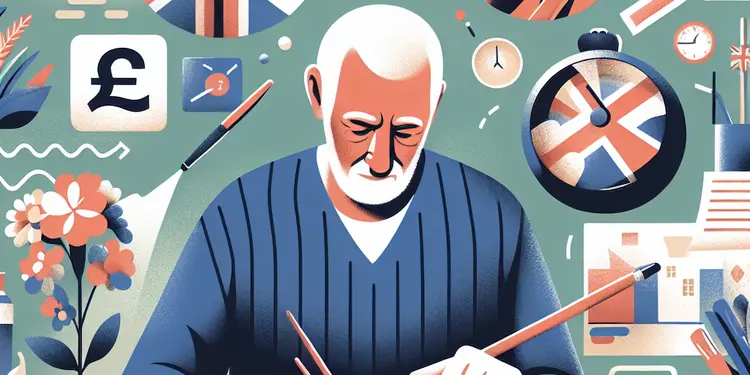
What benefits do new hobbies provide for older adults?
Relevance: 11%
-

How can I make walking to work more enjoyable?
Relevance: 11%
-
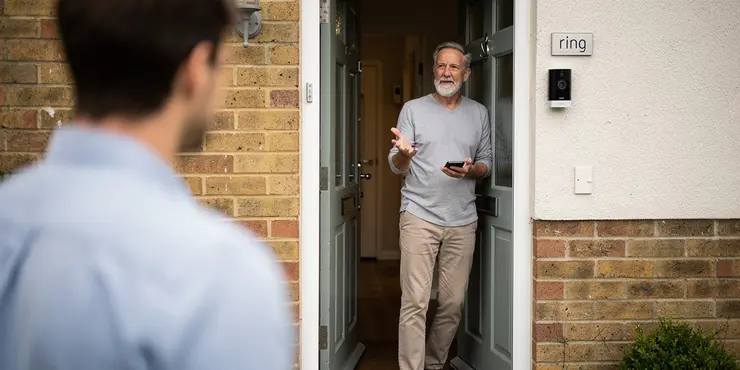
How does a battery-powered Ring Doorbell Camera work?
Relevance: 11%
IBS and Your Mind: Is There a Connection?
Understanding IBS
IBS, or Irritable Bowel Syndrome, is a common gastrointestinal disorder that affects the large intestine. Symptoms can include cramping, abdominal pain, bloating, gas, and diarrhea or constipation, or both. Many people in the United Kingdom suffer from IBS, making it a prevalent issue in British healthcare.
The Mind-Gut Connection
Research indicates there's a significant connection between the mind and the gut, often referred to as the "gut-brain axis." This bi-directional communication system links emotional and cognitive centres of the brain with intestinal functions. This means that your mental health can directly impact your gut health, and vice versa. Disorders such as anxiety and depression are common among people with IBS, suggesting a psychological component to the syndrome.
Stress and IBS Symptoms
Stress is known to exacerbate IBS symptoms. When you are stressed, your body releases stress hormones such as cortisol, which can affect gut motility and secretion. For many in the UK, the pressures of daily life can lead to increased stress levels, potentially triggering or worsening IBS symptoms. Mindfulness techniques, such as meditation and yoga, may help manage stress and alleviate symptoms.
The Role of Cognitive Behavioural Therapy (CBT)
Cognitive Behavioural Therapy (CBT) has shown promise in treating IBS by addressing the psychological distress that often accompanies the disorder. CBT helps individuals understand the connection between their thoughts, emotions, and physical symptoms. In the UK, CBT is available through the NHS or private healthcare providers and can be a valuable tool for those struggling with IBS.
Conclusion
The connection between IBS and the mind is increasingly recognized within the medical community. Understanding and managing stress and psychological factors can play a crucial role in alleviating IBS symptoms. If you are struggling with IBS, consider discussing mental health strategies with your healthcare provider as part of a comprehensive treatment plan.
IBS and Your Mind: Is There a Connection?
What is IBS?
IBS stands for Irritable Bowel Syndrome. It is a problem with the large intestine. People with IBS can have a tummy ache, feel bloated, have gas, and may have diarrhea or constipation. Many people in the UK have IBS, so it’s an important health issue.
How Are the Mind and Gut Linked?
Your mind and tummy talk to each other. This is called the "gut-brain axis." If you are worried or sad, it can make your tummy feel bad. This means that how you feel in your mind can change how your tummy feels. People who have IBS often feel worried or sad, which shows a link between the mind and IBS.
How Does Stress Affect IBS?
Stress can make IBS worse. When you are stressed, your body makes hormones like cortisol. These can upset your tummy. Stress from daily life in the UK can make IBS worse. Doing things like meditation and yoga can help you relax and may help your tummy feel better.
What is CBT?
CBT or Cognitive Behavioural Therapy can help people with IBS. It helps you see how your thoughts and feelings relate to your body. In the UK, you can get CBT through the NHS or private doctors. It can be a good way to help with IBS.
What Should You Know?
Doctors are learning more about how IBS and the mind are linked. Managing stress and feelings can help with IBS. If you have IBS, talk to your doctor about ways to help your mind and tummy feel better.
Frequently Asked Questions
What is Irritable Bowel Syndrome (IBS)?
Irritable Bowel Syndrome (IBS) is a common disorder that affects the large intestine, causing symptoms like cramping, abdominal pain, bloating, gas, and diarrhea or constipation.
How does IBS affect mental health?
Mental health and IBS are interconnected. Stress, anxiety, and depression can trigger or worsen IBS symptoms, creating a cycle that affects both the mind and the digestive system.
Can stress cause IBS?
While stress is not a direct cause of IBS, it can trigger and exacerbate symptoms. Stress management techniques can often help alleviate symptoms.
Are there psychological therapies that help with IBS?
Yes, therapies such as cognitive-behavioral therapy (CBT) and gut-directed hypnotherapy have shown to be effective in managing IBS symptoms.
How common is IBS in the UK?
IBS is quite common in the UK, affecting about 10-20% of the population at some point in their lives.
What lifestyle changes can help manage IBS symptoms?
Regular exercise, adequate sleep, and a balanced diet low in FODMAPs can help manage IBS symptoms. Stress reduction techniques such as yoga and meditation are also beneficial.
Can diet impact IBS and mental health?
Yes, diet plays a crucial role in managing IBS symptoms. Foods that cause gas or bloating can exacerbate symptoms, which in turn can affect mental wellbeing.
Are there medications available for IBS?
Yes, there are over-the-counter and prescription medications that can help manage IBS symptoms including laxatives for constipation, antispasmodics for cramping, and anti-diarrheal medications.
What role does the gut-brain axis play in IBS?
The gut-brain axis is a bidirectional communication system between the gut and the brain. Imbalances or disruptions in this axis can impact both IBS symptoms and mental health, highlighting the importance of addressing both aspects in treatment.
Can probiotics help with IBS symptoms?
Some studies suggest that probiotics can help improve the balance of gut bacteria and may alleviate some IBS symptoms, although more research is needed.
Does IBS affect men and women differently?
Yes, IBS tends to be more common in women than men. Women often report more severe symptoms, which may be influenced by hormonal changes.
Is there a genetic component to IBS?
Genetics may play a role in IBS, as the condition can run in families. However, environmental factors and lifestyle choices are also significant contributors.
Can IBS be cured?
There is currently no cure for IBS, but symptoms can be managed effectively with a combination of dietary and lifestyle changes, medications, and mental health therapies.
Is IBS linked to other gastrointestinal diseases?
IBS can coexist with other gastrointestinal conditions like inflammatory bowel disease (IBD) and gastrointestinal reflux disease (GERD), but it is a separate condition with its own unique symptoms.
Can exercise improve IBS symptoms and mental health?
Regular physical activity has been shown to improve IBS symptoms and boost mental health by reducing stress and promoting overall well-being.
What is Irritable Bowel Syndrome (IBS)?
IBS is a tummy problem. It makes your tummy hurt or feel funny. It can cause diarrhea (runny poo) or constipation (hard poo). IBS can also make your tummy bloat and make you feel gassy.
IBS is not dangerous, but it can make you feel unwell.
If you think you have IBS, talk to a doctor. They can help you feel better.
To help with reading, you can:
- Use a finger or a ruler to keep your place when reading.
- Read out loud to hear the words.
- Take breaks if reading gets too hard.
Irritable Bowel Syndrome, or IBS, is a problem with the large intestine. It makes you feel uncomfortable in your belly. You might get cramps, pain in your tummy, feel bloated, have gas, or have trouble with pooping, like diarrhea or constipation.
How does IBS affect how we feel?
IBS can make your tummy hurt. It can also make you feel sad or worried.
If your tummy hurts a lot, it might make you feel grumpy or upset.
Sometimes, it is hard to do things like school or play when your tummy hurts.
Talking to someone you trust, like a parent or teacher, can help. Breathing exercises and relaxing can also make you feel better.
Mental health and tummy problems are linked. Feeling stressed, worried, or sad can make tummy troubles worse. This can cause a cycle that affects your feelings and your tummy.
Can stress make IBS happen?
IBS stands for Irritable Bowel Syndrome. It is a tummy problem.
When people feel stressed or worried, it can make IBS worse. Stress does not cause IBS, but it can make the symptoms stronger.
Here are some ways to help with stress:
- Take deep breaths
- Do some easy exercises like walking
- Talk to someone you trust
- Listen to calming music
If you think stress is affecting your tummy, talk to a doctor or someone who can help you feel better.
Stress does not cause IBS (Irritable Bowel Syndrome), but it can make IBS symptoms worse. Learning how to manage stress can help you feel better.
Can talking therapies help with IBS?
IBS stands for Irritable Bowel Syndrome. It can make your tummy hurt or feel uncomfortable. Sometimes, talking therapies can help.
Talking therapies let you talk to someone about how you feel. This can be a counselor or therapist.
Here are some ways talking therapy can help:
- It can teach you to relax.
- It helps you understand your feelings.
- It can give you ways to handle stress.
If thinking about trying talking therapy, ask your doctor or a grown-up you trust. They can help you find the right person to talk to.
Using apps or relaxation videos can also be helpful. These can teach you relaxing exercises you can do at home. Remember, it's okay to ask for help when you need it.
Yes, there are therapies that can help people with IBS feel better. Two good ones are talking therapy (CBT) and special relaxing therapy for the tummy (gut-directed hypnotherapy).
If these words are hard to understand, you can ask an adult or use apps that read the words out loud to you.
How many people have IBS in the UK?
Lots of people in the UK have IBS. It affects about 10 to 20 out of every 100 people at some time in their lives.
What can you change in your life to help with IBS?
Doing exercise often, getting good sleep, and eating healthy foods low in FODMAPs can help with IBS. Doing activities like yoga and meditation to reduce stress can also help.
Can the food we eat affect IBS and how we feel?
IBS is something that can make your tummy hurt and change how you go to the toilet.
What we eat matters! Eating good food can help our tummies feel better.
Food can also change how we feel in our heads. Eating healthy can make us feel happier and less worried.
Here are some tips to help:
- Try eating more fruits and veggies.
- Drink plenty of water.
- Avoid too much sugar or junk food.
If you need help to eat better, you can:
- Ask a grown-up or a doctor.
- Use a notebook to write down what you eat.
- Use pictures or charts to plan meals.
Yes, what you eat can help with IBS symptoms. Some foods can cause gas or make your tummy feel big, which can make you feel upset or worried.
Can medicine help with IBS?
Yes, there are medicines you can buy at the store or get from a doctor that can help with IBS. If you have trouble going to the toilet (constipation), there are medicines called laxatives. If your tummy hurts and cramps, there are medicines called antispasmodics. If you have to go to the toilet too often (diarrhea), there are medicines to help with that too.
How does the gut-brain connection affect tummy problems?
The gut-brain connection is like a special chat between your belly and your brain. This chat can help explain why sometimes your tummy hurts.
Here are some things that might help you understand:
- Feelings: Feeling worried or sad can make your tummy feel bad.
- Food: Eating certain foods might upset your tummy.
- Relaxing: Doing calm activities like breathing exercises can help your tummy feel better.
Some tools that can help are:
- Talking to someone about your feelings.
- Keeping a food diary to see which foods upset your tummy.
- Doing exercises to stay calm and relaxed.
The gut-brain axis is how your tummy and brain talk to each other. If this talk is not right, it can make your tummy hurt and it can also make you feel sad or worried. This is why it is important to take care of both your tummy and feelings when you get help.
To help understand better, you can use pictures or videos about how the tummy and brain work together. You can also talk to a doctor or a nurse to get more help.
Do probiotics help with IBS symptoms?
IBS stands for Irritable Bowel Syndrome. It is a tummy problem that makes you feel uncomfortable.
Probiotics are good germs that live inside your tummy. They can help your tummy feel better.
Some people say probiotics can help with IBS. But it's not the same for everyone.
If you have tummy problems, try these tips:
- Eat slowly and chew your food well.
- Drink lots of water during the day.
- Try foods with probiotics, like yogurt.
- Talk to a doctor or nurse if your tummy hurts a lot.
Some studies say tiny living things called probiotics can help. They can make the tummy feel better by balancing the good and bad bugs inside. But we need to study more to be sure.
Do men and women feel IBS differently?
IBS is short for Irritable Bowel Syndrome. It can make your tummy hurt. It can also make you need to go to the bathroom a lot or feel like you can't go at all.
Men and women can feel IBS in different ways. Women might feel more tummy pain, especially during their period. Men might have IBS too, but they talk about it less.
Everyone's body is different. If IBS makes you feel bad, talk to a doctor. They can help you feel better.
Useful tools:
- Keep a food diary: Write down what you eat and how you feel. This can help figure out what makes your IBS worse.
- Try relaxation techniques: Deep breathing or yoga can help calm your body.
- Use apps: Some apps can help track your symptoms and meals.
Yes, IBS (Irritable Bowel Syndrome) happens more in women than men. Women often feel stronger symptoms. This might be because of hormonal changes in their bodies.
Can IBS run in families?
IBS stands for Irritable Bowel Syndrome. It is a tummy problem.
Sometimes, if someone in your family has IBS, you might get it too. This means it could be in your genes. Genes are like instructions in your body.
If you have tummy problems, talk to a doctor. They can help you.
Here are some things that might help:
- Eat healthy food.
- Try to be calm and not stress too much.
- Keep a diary of what you eat.
- Exercise a little bit every day.
IBS can sometimes happen because of our genes. This means it can be in the family. But how we live and what happens around us are also important reasons for IBS.
Can IBS go away?
IBS stands for Irritable Bowel Syndrome. It can make your tummy hurt and cause problems like diarrhea or constipation.
IBS cannot be completely cured, but you can do things to feel better.
Here are some tips to help with IBS:
- Eat healthy foods
- Avoid foods that upset your tummy
- Try to relax and not worry too much
- Exercise regularly
- Talk to a doctor for help
Tools that might help you:
- Food diary: Write down what you eat to see what upsets your tummy.
- Relaxing apps: Help you stay calm and reduce stress.
Remember, always talk to a doctor if you have tummy problems. They can help you find the best way to feel better.
Right now, there is no way to make IBS go away completely. But, you can feel better by doing a few things. You can change what you eat, change some things you do every day, take medicine, and talk to someone about how you feel.
Can IBS be connected to other tummy problems?
IBS is short for Irritable Bowel Syndrome. This is when your tummy hurts and you might need to go to the toilet a lot. Some people want to know: Can IBS be connected to other tummy problems?
Here are some ways to help understand:
- Use pictures to show how your tummy works.
- Talk to a doctor or a nurse when you have questions.
- Write down when your tummy hurts and what you eat. This can help you see what might be causing problems.
IBS is a tummy problem. People can have IBS and other tummy problems at the same time, like IBD or GERD. But IBS is its own thing with its own special signs.
It can help to talk about IBS with a doctor or nurse. They can tell you more about it.
Can Exercise Help with Tummy Troubles and Feeling Good?
Exercise can be good for your tummy and make you feel happier. If your tummy often hurts or feels funny, moving your body can help. It can also make your mind feel better and help when you feel sad or worried.
Try to move a little every day. You can walk, ride a bike, or play a game. Start with easy things and see how you feel. Ask an adult to help you choose fun exercises. Remember, moving is good for both your tummy and your mind!
Friendly tools like listening to music or having a plan can make it more fun. You can also keep a diary of how you feel after moving to see what works best for you.
Doing exercise regularly can help make tummy problems better and make you feel happier. It helps to stop feeling worried and makes you feel good.
Useful Links
This website offers general information and is not a substitute for professional advice.
Always seek guidance from qualified professionals.
If you have any medical concerns or need urgent help, contact a healthcare professional or emergency services immediately.
Some of this content was generated with AI assistance. We’ve done our best to keep it accurate, helpful, and human-friendly.
- Ergsy carfully checks the information in the videos we provide here.
- Videos shown by Youtube after a video has completed, have NOT been reviewed by ERGSY.
- To view, click the arrow in centre of video.
- Most of the videos you find here will have subtitles and/or closed captions available.
- You may need to turn these on, and choose your preferred language.
- Go to the video you'd like to watch.
- If closed captions (CC) are available, settings will be visible on the bottom right of the video player.
- To turn on Captions, click settings .
- To turn off Captions, click settings again.
More Items From Ergsy search
-

IBS and your mind: Is there a connection?
Relevance: 100%
-

IBS and your mind: Is there a connection?
Relevance: 99%
-

About irritable bowel syndrome (IBS)
Relevance: 48%
-

What is irritable bowel syndrome (IBS)?
Relevance: 45%
-

Treating irritable bowel syndrome (IBS)
Relevance: 45%
-

Causes of irritable bowel syndrome (IBS)
Relevance: 44%
-

Causes of irritable bowel syndrome (IBS)
Relevance: 43%
-

Treating irritable bowel syndrome (IBS)
Relevance: 43%
-

About irritable bowel syndrome (IBS)
Relevance: 42%
-

What is irritable bowel syndrome (IBS)?
Relevance: 41%
-

Symptoms of irritable bowel syndrome (IBS)
Relevance: 41%
-

Does your diet affect IBS?
Relevance: 41%
-

Diagnosing irritable bowel syndrome (IBS)
Relevance: 41%
-

Symptoms of irritable bowel syndrome (IBS)
Relevance: 41%
-

Will travel insurance cover missed connections?
Relevance: 37%
-

Why are there unfamiliar apps connected to my social media account?
Relevance: 31%
-

Does holiday insurance cover travel delays or missed connections?
Relevance: 29%
-

How can I secure my phone's internet connection?
Relevance: 29%
-

How is gut health connected to the aging process?
Relevance: 25%
-

What is the connection between GLP-1 and insulin?
Relevance: 24%
-

Is there a connection between cortisol and the immune system?
Relevance: 24%
-

Does stress impact gut health as we age?
Relevance: 20%
-

Are there specific gut-related diseases that become more common with age?
Relevance: 16%
-

How does walking to work impact mental health?
Relevance: 16%
-

Essential Tips for Mental Health and Well-Being Amidst Rising Living Costs
Relevance: 14%
-

Can lifestyle changes help with postnatal depression?
Relevance: 14%
-

Can gut health affect mental health as one ages?
Relevance: 14%
-

How can older adults find new hobbies that can be done at home?
Relevance: 13%
-

Can lifestyle changes during menopause help reduce dementia risk?
Relevance: 13%
-

How important is self-care for carers of Alzheimer's patients?
Relevance: 13%
-

Innovative App Aims to Combat Loneliness Among Elderly
Relevance: 13%
-

What are some signs of poor gut health?
Relevance: 13%
-

How can carers manage stress while caring for someone with Alzheimer's?
Relevance: 12%
-

How does social media contribute to the loneliness epidemic?
Relevance: 12%
-

What is gut health?
Relevance: 12%
-

What should someone do if they suspect they have health-related anxiety?
Relevance: 12%
-

Are there self-help strategies for managing health-related anxiety?
Relevance: 12%
-

What benefits do new hobbies provide for older adults?
Relevance: 11%
-

How can I make walking to work more enjoyable?
Relevance: 11%
-

How does a battery-powered Ring Doorbell Camera work?
Relevance: 11%


